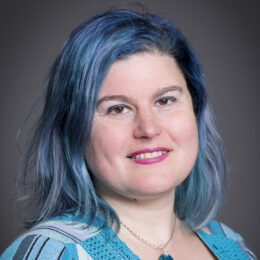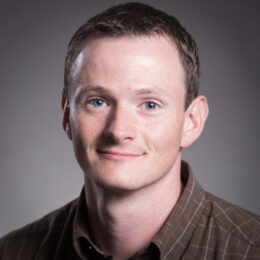Biology
Manchester’s Biology program blends rigorous science with personal mentorship. With small classes, hands-on lab work, and opportunities for research, you’ll build a strong foundation for careers in healthcare, education, research, or graduate studies—all within a supportive, student-focused community.
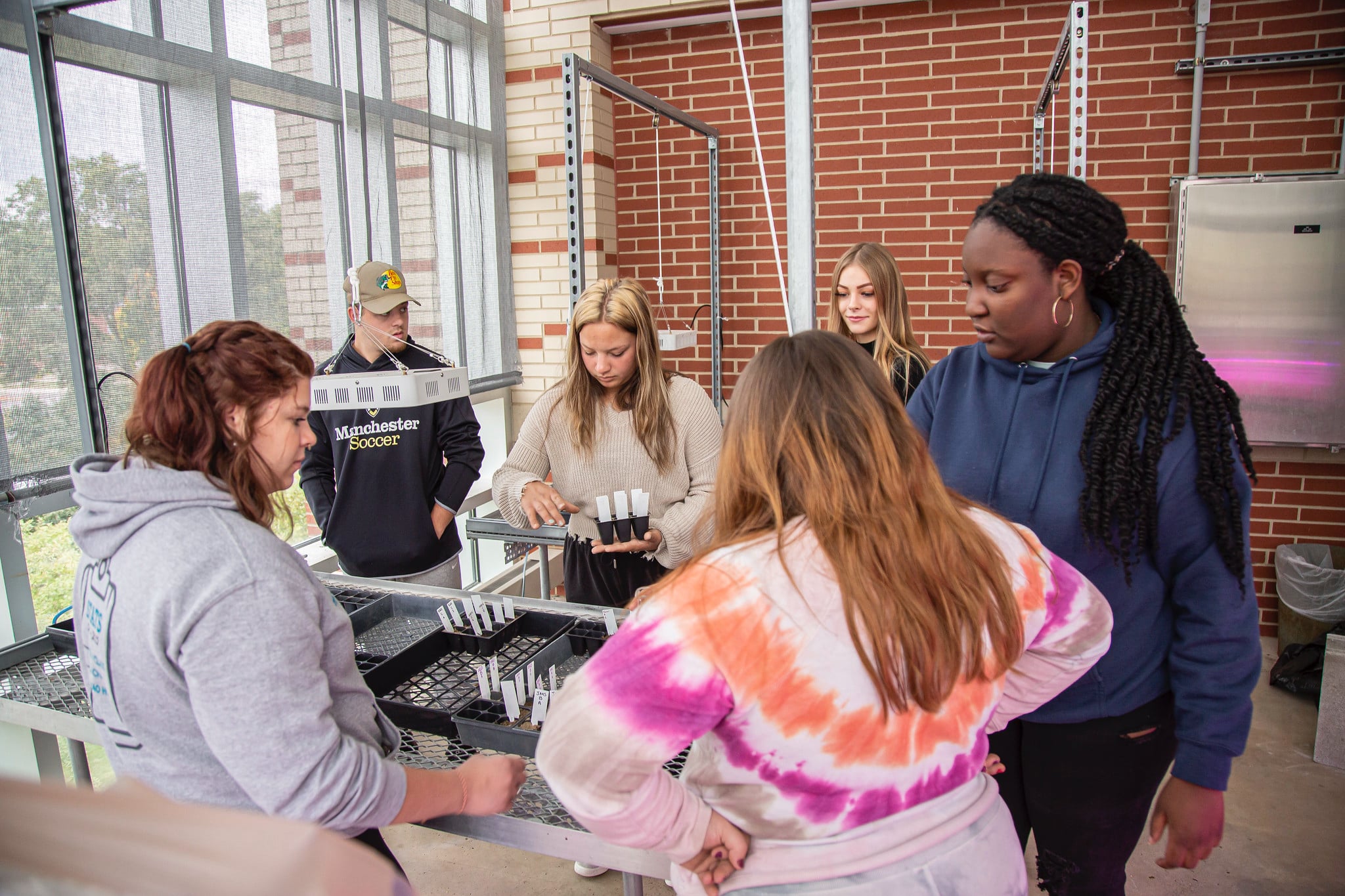
Earn a Bachelor of Science in Biology Degree or Minor in Biology
Explore life at every level—from molecules to ecosystems—with Manchester University’s bachelor of science in biology degree and minor options. These programs offer a deep dive into the core biological sciences through hands-on lab experiences, faculty mentorship, and the flexibility to pursue pre-professional tracks or graduate study. Students learn in small classes that promote curiosity, critical thinking, and collaboration—preparing them to succeed in careers ranging from healthcare to environmental science.
Program Information:
- 49 Credit Hours
Minor
- 24 Credit Hours
Location
- North Manchester

Ally Schumacher, Biology, Class of 2020
Why Choose MU for Biology?
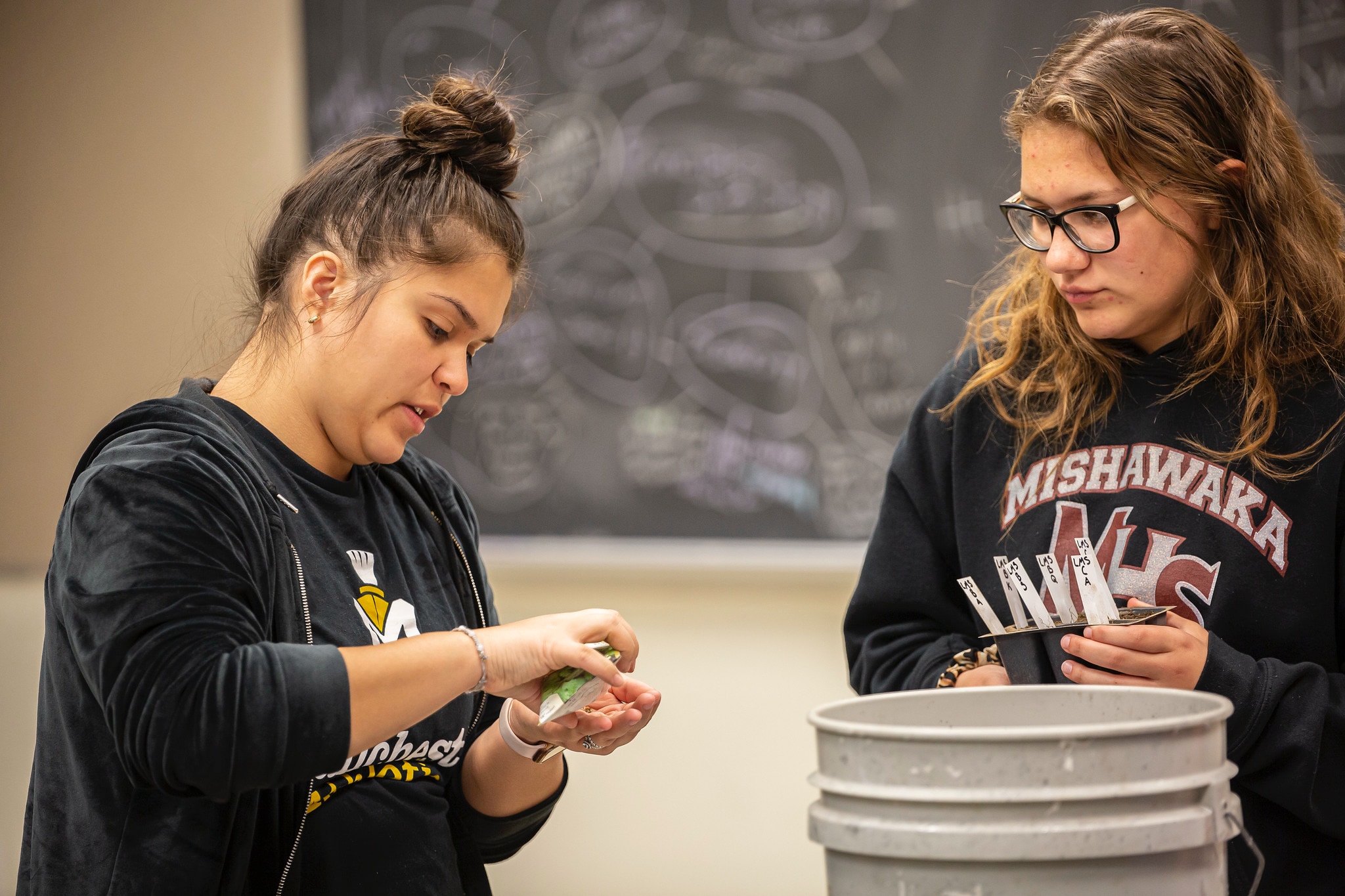
Personalized Mentorship from Expert Faculty
Hands-On Learning in Natural Environments
Research Opportunities That Make a Difference
What You Can Do with Your Biology Degree
Graduate Student
Pursue advanced degrees in healthcare, research, or academia.
Environmental Scientist
Protect ecosystems and public health through research and fieldwork.
Medical Laboratory Technologist
Perform diagnostic testing to support patient care and treatment.
Science Educator
Inspire future scientists as a high school biology teacher.

Average Starting Salary for Biology Degree Holders
Graduates with a bachelor of science in biology degree from Manchester University are well-prepared for entry-level careers or graduate study. Many pursue roles in healthcare, education, and research, while others go into environmental science, science communication, or public health. Starting salaries typically range from $40,000 to $50,000, with higher earning potential for those who pursue professional degrees in medicine, veterinary science, or biotechnology. Manchester’s hands-on learning and faculty mentorship help students build a strong foundation for career success across diverse biology-related fields.
How the Biology Program Supports Your Growth
Guiding Principles
Student-Faculty Research
Outdoor Learning Environments
Study Away Opportunities
Manchester biology students can explore the world through programs like the Medical Practicum in Guatemala or the “Development of Modern Scientific Thought” trip to London. These experiences foster global awareness and interdisciplinary learning.
Student Groups
Tri-Beta
Beta Beta Beta (TriBeta) is a society for students, particularly undergraduates, dedicated to improving the understanding and appreciation of biological study and extending boundaries of human knowledge through scientific research. Since its founding in 1922, more than 200,000 persons have been accepted into lifetime membership, and more than 553 chapters have been established throughout the United States and Puerto Rico.
Environmental Group
The MU Environmental Group is primarily run by students concerned with protecting and preserving the earth while educating students and the community about such issues as recycling, reducing consumption and global environmental trends. You can follow them on Instagram: @muenvironmental
Zoology Club
The Zoology Club is run by students who love all animals. This club engages in unique activities that involve the maintenance of animals and their habitats. Through hands-on interactions, Manchester students expand their knowledge of different species, their behavior, and their environments. You can follow them on Instagram: @manchesterzoology
Lake Erie College of Osteopathic Medicine
Manchester University has partnered with the Lake Erie College of Osteopathic Medicine (LECOM) to establish an Early Acceptance Program for students pursuing professional degrees in osteopathic medicine, dentistry or podiatry after their undergraduate studies have been completed. The three professional programs open to Manchester students are LECOM’s Doctor of Osteopathic Medicine, Doctor of Dental Medicine, and Doctor of Podiatric Medicine.
While at MU
Phase I is the time spent enrolled in the Early Acceptance Program at Manchester University, completing an MU bachelor’s degree with at least 60 credit hours of full-time study at MU.
While at LECOM
Phase II is the time spent at LECOM and its associated clinical training sites.
Who Can Qualify?
LECOM will interview students prior to their enrollment at Manchester or within the first two years of study there. Each academic year, LECOM will accept up to the number of qualified students in the Early Acceptance Program as seen below:
- 5 students into the Doctor of Osteopathic Medicine program
- 5 students into the Doctor of Dental Medicine program
- 2 students into the Doctor of Podiatric Medicine program.
LECOM Locations
LECOM, with campuses in Pennsylvania, Florida and New York, is the nation’s largest medical college and provides student-centered pathways to prepare the next generation of health care professionals. Manchester is one of just three higher education institutions in Indiana affiliated with LECOM’s Early Acceptance Program.
Meet the Faculty
You Might Also Be Interested In These Programs
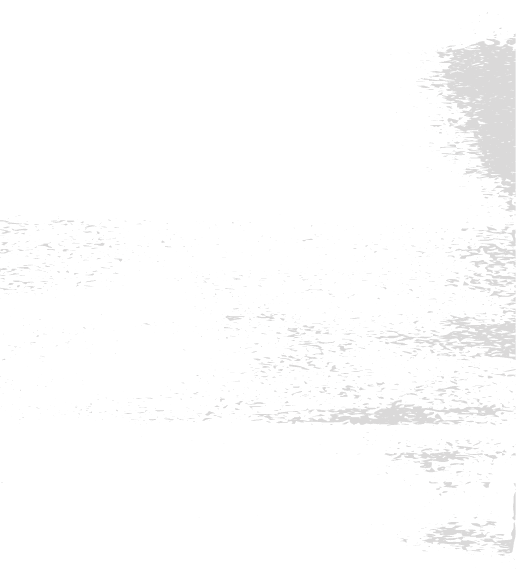
FAQs About Manchester University’s Biology Degree
What are the admission requirements for the Bachelor of Science in Biology program?
How long does it typically take to complete the Biology BS degree?
Are there opportunities for undergraduate research in the Biology program?
What career paths are available with a Bachelor of Science in Biology degree?
Is there a difference between a Bachelor of Science (BS) and a Bachelor of Arts (BA) in Biology?
Are internships a required part of the Biology program?
Does the Biology program offer study abroad opportunities?
A standout option is the January-term Medical Practicum in Guatemala, where students collaborate with health professionals in a rural clinic setting—perfect for those interested in health sciences or global biological systems.
Another popular course is “Development of Modern Scientific Thought,” a trip to London that connects biology, history, and culture.
These programs enhance the traditional biology curriculum with global awareness and interdisciplinary learning. Study abroad helps students strengthen their understanding of life sciences, the scientific method, and the human connection to living organisms across diverse environments.
Biology Learning Outcomes
Program Learning Outcomes
1. Students will explain the relationship between form and function and interpret the significance of this relationship.
Student Learning Outcomes:
- Students will interpret the significance of form and function in responding to the environmental responses, homeostasis, and evolutionary process.
2. Students will apply biological knowledge within the scientific method.
Student Learning Outcomes:
- Students will analyze, evaluate, and summarize scientific findings of primary scientific articles.
- Students will identify and apply appropriate research techniques to answer scientific questions.
- Students will effectively communicate scientific findings in oral and written formats.
3. Students will evaluate complex current environmental, social, and political challenges facing the world through the lens of biology to propose solutions.
Student Learning Outcomes:
- Students will engage in interdisciplinary conversations surrounding complex environmental, social, and political issues.
- Students will apply their liberal arts background and biological knowledge to propose solutions to complex issues.
Non-Discrimination in the Admission Process
Manchester University is committed to non-discrimination in campus life. The University does not discriminate on the basis of national origin, ancestry, race, color, age, sex, gender identity or expression, sexual orientation, familial status, religion, disability or veteran status in admissions or any area of campus life, including its educational programs, scholarships and loan awards, residence life programs, athletic programs, extracurricular programs, promotion and tenure policies and practice, and alumni affairs.
Manchester University is committed to carry out the provisions of Section 504 of the Rehabilitation Act of 1973 and the Americans With Disabilities Act, which provide for accessibility of University programs to the physically disabled.






